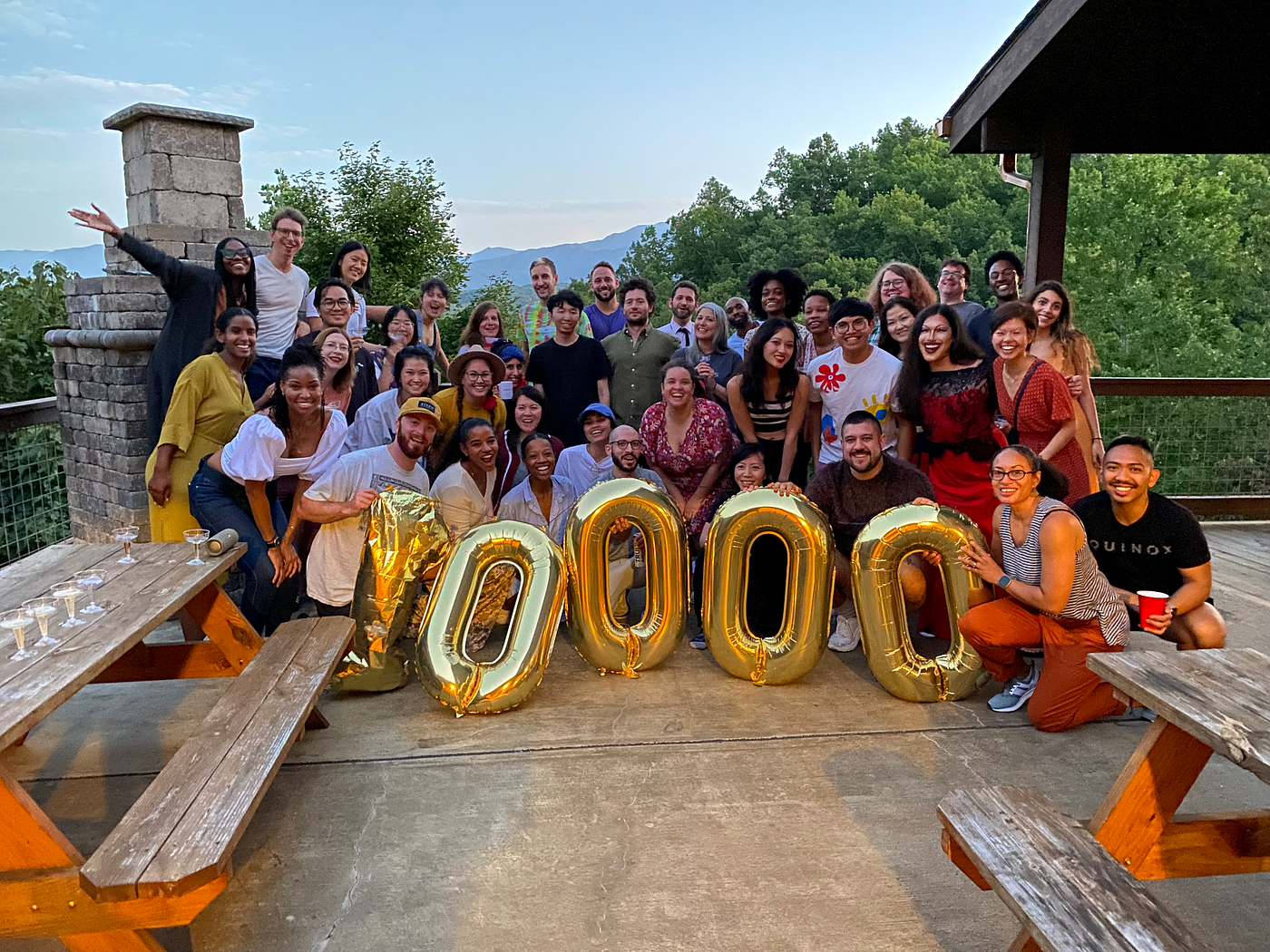With the end of the year approaching, I can’t help but reflect on 2022 and all that I’ve learned, both personally and professionally. Despite considering myself a private person, I thought I’d share some of my reflections more widely this year.
Why? Going on a startup journey can be lonely; I know I have felt isolated and tired through these last few years. Yet as I think about what’s given me energy and joy, it’s the moments when I share the rollercoaster of events with my co-founder, Elise, and my team. It’s when I hear real stories, challenges, and experiences from other founders. Nothing will ever prepare someone to start their own company, but by sharing my own learnings, I hope I can help demystify the founder journey. Or at least make it feel a bit less lonely.
Each founder’s story will be different! I share only what I’ve learned and experienced. In this past year alone, there are too many experiences and lessons I’m proud of and grateful for to list here, so here are just four things to start.
Building a leadership team
Before 2022, Elise and I met for 30 minutes every day to act as a nimble, decision-making pair, where we both fully knew what the entire team was up to. However, as we grew from 10 to 20 and then to 45 people, things started to break down. We were moving slower as decisions weren’t getting made quickly and communication became more complicated. Hiring pipelines were taking months to fill spots or even weeks just to follow up. We simply didn’t have time to get every important thing done in the day. It felt like we started to run out of time to even think.
So we hired our first executives. We added a CTO, Theresa Vu, and Head of Customer Impact, Sabrina Rønningen, to our team, and then a Head of Curriculum, Mekayla Castro, and Head of Sales, Tom Barnes.
Seemingly overnight, we became a legitimate company with functional leaders and distributed ownership. This transition had its own challenges: defining areas of responsibility, creating a shared decision making philosophy, and — this one was particularly tricky for me — identifying what we as founders needed to let go of. And while this is still in process, I am proud to have found people that I trust, lean on, and respect.

Moving from founder-led product to PM-led product
2022 was the first time that Praxis hired product managers. Before, I was the de facto product person. Elise and I had spoken with 150+ potential customers to understand pain points, and I participated in most of the sales pitches to hear feedback, directly managed all of technology, design, and product, and shepherded our product from ideation to our first launch. With new PMs, I had to figure out how to translate all of that institutional knowledge into a product vision to guide them versus directly managing the product. On top of all of that, there was no Product function yet — I was the main interface for any product questions or decisions and our team had very little concept of what PMs do, how they are helpful, and why they get to make certain decisions.
In all of this, I had to learn how to build functions, educate the wider team on organizational change, and structure interfaces across teams like customer success, engineering, and marketing.
Taking a vacation
Both of the above experiences enabled this milestone. For the first 2 years of Praxis, I struggled with fully detaching even when I was “out of office,” exacerbated by COVID and remote work feeling “always on.” I had taken a few days off here and there, tacking an extra day or two on a long weekend, but this past fall was my first time taking a full 2 weeks where I turned off my Slack notifications and rarely checked email.
And nothing happened!
When I returned, everyone was moving aligned with the company direction, releases were still going as scheduled, teammates were resolving their own disagreements. At first, I was a little sad — maybe people didn’t need me anymore. But afterwards, I realized I was actually really proud — the team was operating independently and we had built a resilient organization in just 6 months. Now, instead of trying to frantically stay afloat, I get the space to define and figure out the role, work, and strategy I need to prioritize next.

Acknowledging and moving through Imposter syndrome
The first year of Praxis, I’d doubt myself: “How can you succeed if you’ve never done this before?” or “Will people find out that I’m just faking this?” I honestly had a fear that our board would fire me (and this was at a time when my co-founder and I held the majority in the board 😅).
It’s exhausting to live with so much self-doubt and fear.
I don’t think that I will ever completely let go of Imposter syndrome. But I got tired of feeling this way. So I forced myself to verbalize these thoughts with my co-founder, my leadership coach, and my friends and family to confront when and why I feel this way. When I feel these questions pop up now, I’m learning how to acknowledge and move through it. I remind myself that I am still growing. I celebrate my successes (even writing this piece is a milestone for me). And most importantly, I know that I am not alone.
I’d love to get in touch on LinkedIn. Let me know what resonated with you or what you’d like to hear more about. I’m also sharing a few resources I used this year (shared by mentors, friends, and teammates) to navigate the challenges above.
